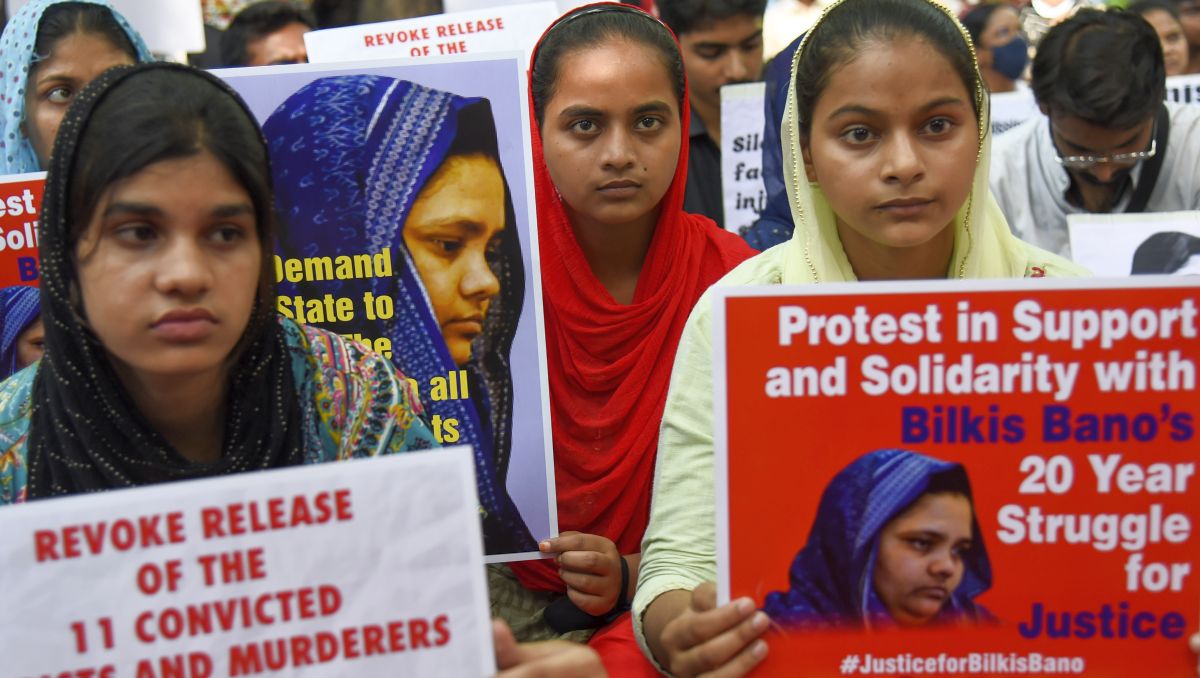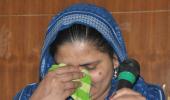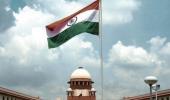'The state of Gujarat was to my mind 'partisan and over enthusiastic' in the way it dealt with remission applications.'

Dr Meeran Chadha Borwankar, the former Pune police commissioner, was among the four petitioners who challenged the remission granted by the Gujarat government to 11 convicted rapists in the Bilkis Bano case.
Dr Chadha Borwankar filed a writ petition (Crl.) No. 352 of 2022 -- Dr Meeran Chadha Borwankar vs State of Gujarat -- in which she appealed for setting aside the remission of the 11 rape convicts and also sought direction from the Supreme Court to make states constitute pluralistic jail advisory committees.
"This attitude (of granting remission to rapists) breeds more crime against women. It makes us a sick society," the retired Indian Police Service officer tells Prasanna D Zore/Rediff.com.
What was your reaction when you heard that the convicted rapists of Bilkis Bano were prematurely released in August 2022?
I found it very hard to believe as the criminal case involved the gang rape of a pregnant woman, the murder of her three-year-old child and six more relatives. As chief of Maharashtra prisons we never recommended remission in such barbaric cases. So I was shocked to say the least.
What kind of emotional churn did you go through before you decided to file the writ petition in the Supreme Court?
Did anybody approach you to withdraw your petition? Was there any pressure on you to do so?
Professor Jagdeep Chhokar approached me and Madhu Bhaduri to consider filing a PIL since all three of us felt very strongly that the remission was completely wrong in such a heinous crime. Such remission would only embolden criminals and communities to instigate communal riots with extreme form of violence.
Advocate Vrinda Grover is a very strong voice for women. She did not take a penny from us, but worked hard along with her team in drafting legal documents for our group.
No one approached me to withdraw the case and there was no pressure from any section. But I was repeatedly told that it was a lost battle and that I were wasting my energy and we would lose the petition.
However, I was very confident as the state of Gujarat was to my mind 'partisan and over enthusiastic' in the way it dealt with remission applications.
I was aware that the presiding officer of the Mumbai special (CBI) court that had convicted the accused had opined against remission. I was told that even the investigating officer had not recommended remission.
You also sought a writ or order in the nature of mandamus seeking the Supreme Court's direction to states for pluralistic composition in jail advisory committees? What was the Supreme Court ruling on this part of your petition?
The court has made detailed observations about the constitution of jail advisory committees and has reiterated the correct procedure to be followed as per the CrPC (the Criminal Procedure Code).
We as petitioners wish to ensure that jail advisory committees do not get usurped by the political party in power but remain neutral.
What psychological impact could the remission of these rapists earlier have had on rape survivors in India who would have had the resources to read and understand the earlier Supreme Court order?
I feel remissions to rapists while emboldening them and their likes, discourage girls and women about reporting their physical abuse.
Families also prefer to remain silent and convey the message down the line.
This attitude (of granting remission to rapists) breeds more crime against women.
It makes us a sick society where a girl child is aborted before birth as she and her safety is considered a huge liability. We have gone through this phase during 1970s and 1980s.
Strong governments had taken many bold steps and atmosphere had just changed for better when these remissions shook our confidence.
How do you look at the Supreme Court judgment in its finality, especially, for rape survivors?
The Supreme Court order is very bold in declaring its own order of May 13, 2022 as erroneous because the petitioners had misinformed it and suppressed facts.
It clarifies that as per section 432 of the CrPC 'appropriate government' to grant remission is where a trial is conducted and not where offence took place.
At the very beginning the Supreme Court has made it clear that women irrespective of their religion and creed need to be respected.
Your message to Indian women in the light of the Supreme Court judgment...
Speak up. Fight against injustice. Team up and do not give up. Men and women have to be together in our fight against injustice.
- You can read the entire Supreme Court order here.










